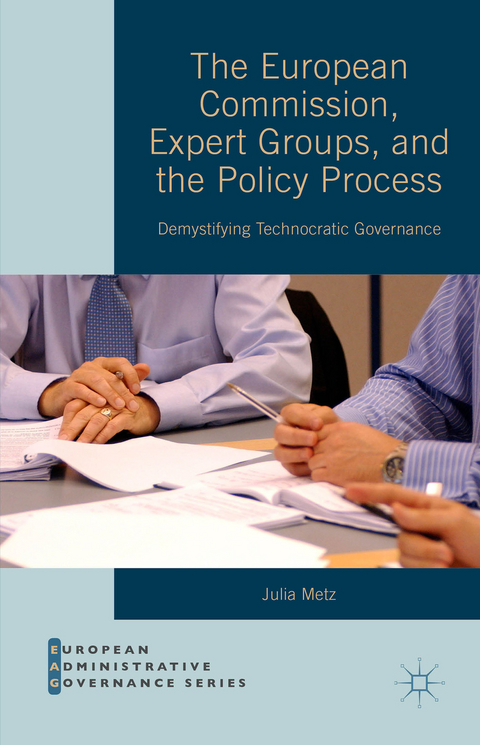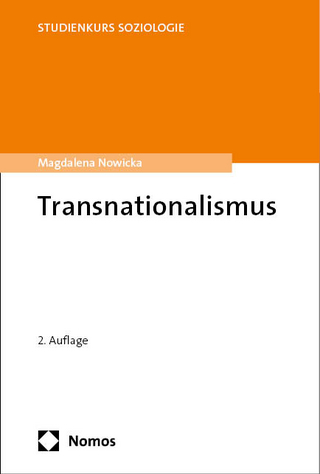
The European Commission, Expert Groups, and the Policy Process
Palgrave Macmillan (Verlag)
978-1-137-43722-8 (ISBN)
Julia Metz is an advisor at the German Parliament. She holds a doctoral degree from the Freie Universität Berlin and has previously worked as a senior researcher at the WZB Berlin Social Science Center and at the University of Bremen, Germany. Her work covers the areas of public administration and European governance, and has appeared in, among others, the Journal of European Integration and in Policy and Society.
Figures and Tables Acknowledgements Abbreviations PART I: INTRODUCTION 1.1. Expert groups: What do we know from the literature? 1.2. Expert groups in the policy process and the role of resource dependencies 1.3. Investigating European Commission expert groups 1.4. Outline of the book PART II: A RELATIONSHIP OF RESOURCE DEPENDENCIES 2.1. Resource dependence theory 2.2. The European Commission as a resource-dependent organization 2.3. The European Commission's demand for resources 2.4. A typology of expert-group use 2.5. Determinants of the European Commission's use of expert groups 2.6. Conclusion PART III: A BIRD'S-EYE VIEW 3.1. Expert groups explained 3.2. Quantitative analysis: Challenging the myth of technocracy 3.3. Conclusion PART IV: TECHNICAL ADVICE UNITED WITH POLITICAL AGENDA SETTING 4.1. The Information Society Technologies Advisory Group 4.2. Providing expertise to the Sixth Framework Programme 4.3. Supporting DG Information Society's budget request for the Seventh Framework Programme 4.4. Conclusion PARTV: POWERFULLY SHAPING THE COMMISSION'S RESEARCH AGENDA 5.1. The European Research Advisory Board 5.2. The expert group's strong impact on the Seventh Framework Programme 5.3. Giving credence to DG Research's position on the European Institute of Technology 5.4. Conclusion PART VI: A REALITY CHECK AND CLEARING HOUSE 6.1. The Enterprise Policy Group 6.2. A brief encounter between the expert group and the Competitiveness and Innovation Framework Programme 6.3. Conclusion PART VII: ACCUMULATING POLITICAL AMMUNITION 7.1. The European Research Area Expert Group on Research Infrastructures 7.2. Defending the Commission's legal framework for a European Research Infrastructure 7.3. Conclusion PART VIII: A CROSS-SECTORAL VIEW 8.1. Insights from the case studies: Resource dependencies and administrative culture 8.2. Expert-group use across policy areas 8.3. Conclusion PART IX: CONCLUSION: TECHNOCRATIC GOVERNANCE BETWEEN MYTH AND REALITY 9.1. Resource dependencies revisited 9.2. The European Commission, expert groups, and the policy process: New insights 9.3. Beyond the European Union: The relationship between policy makers and experts 9.4. Expert groups, legitimacy, and transparency - and what to do about it Appendix References
| Erscheint lt. Verlag | 3.8.2015 |
|---|---|
| Reihe/Serie | European Administrative Governance |
| Zusatzinfo | XIV, 243 p. |
| Verlagsort | Basingstoke |
| Sprache | englisch |
| Maße | 140 x 216 mm |
| Themenwelt | Naturwissenschaften |
| Sozialwissenschaften ► Politik / Verwaltung ► Europäische / Internationale Politik | |
| Sozialwissenschaften ► Politik / Verwaltung ► Politische Systeme | |
| Sozialwissenschaften ► Politik / Verwaltung ► Politische Theorie | |
| Sozialwissenschaften ► Politik / Verwaltung ► Staat / Verwaltung | |
| ISBN-10 | 1-137-43722-7 / 1137437227 |
| ISBN-13 | 978-1-137-43722-8 / 9781137437228 |
| Zustand | Neuware |
| Haben Sie eine Frage zum Produkt? |
aus dem Bereich


